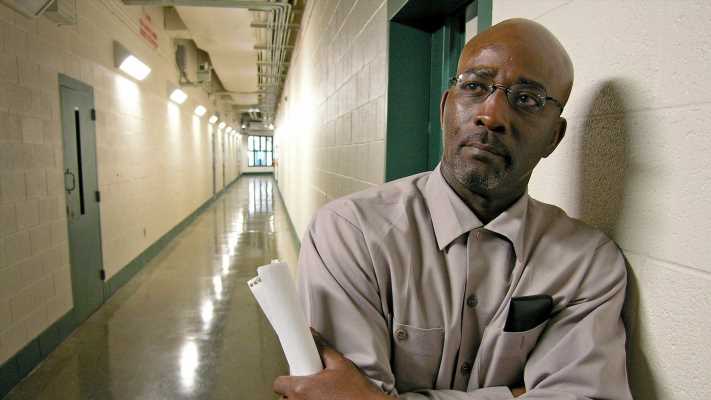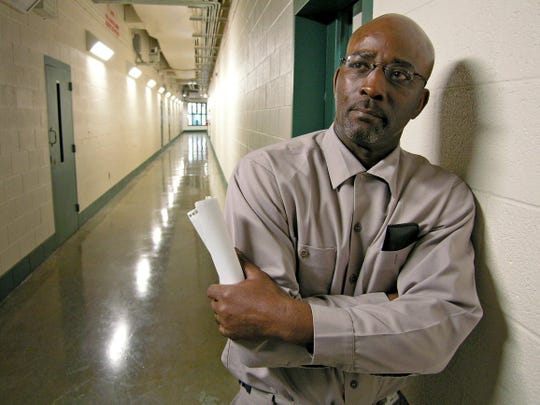In this 2007 file photo, Ronnie Long stands in a hallway at the Albemarle Correctional Institution in Albemarle, east of Charlotte, N.C. (Photo: Peter Weinberger, AP)
Ronnie Long was wrongfully imprisoned for 44 years on a rape conviction in North Carolina. But the state is only compensating him for 15 of those years.
He says he deserves more.
In 1976, Long, who is Black, was accused of raping a white woman and then sentenced to life in prison. His attorneys have said that more than 40 fingerprints and other evidence collected at the scene were never shared. Long was freed in August 2020. He just received a $750,000 check.
North Carolina law states anyone wrongfully convicted of a crime can receive $50,000 for each year they were imprisoned, but the catch is the amount caps at $750,000. That means Long, who is 65, will not be compensated for 29 years of the time in prison.
“You took my 20’s, my 30’s, my 40’s and my 50’s and you still talking about this is worth that?” Long told USA TODAY.
‘Ronnie Long is coming home’: After 44 years in prison for a rape he says he didn’t commit, North Carolina man set free
Wrongfully incarcerated for 23 years: Mississippi man will get maximum compensation, judge says
Long’s criminal attorney Jamie Lau said in a statement to USA TODAY the amount given to Long is “inadequate.” Long’s parents passed away during his time in prison and had no savings prior.
“He entered prison healthy and left broken. His ongoing financial security is the least he deserves after so much was taken over those 44 years,” Lau said.
Other states have similar caps. Mississippi law allows annual payments of $50,000 for each year a person is wrongfully incarcerated but sets a maximum of 10 years’ payment.
Curtis Flowers, a man who spent 23 years on death row after being convicted in the 1996 shooting deaths of four people in Mississippi, was tried six times, with each trial resulting in an overturned conviction or mistrial.
In 2020, Mississippi Attorney General Lynn Fitch said the state would not try the case a seventh time, leaving Flowers a free man. And in March, a state judge ruled Flowers would receive the state’s maximum compensation of $500,000.
Lau said Long’s case and those similar highlight the inadequacy in the cap and Long shouldn’t have needed a pardon from Gov. Roy Cooper to receive the money.
“It’s time to revisit this amount since we are learning the magnitude of the harm caused by wrongful convictions in North Carolina. It’s also time to revisit the compensation statute as a whole, as the governor should not have full authority over who does and does not receive compensation,” Lau said.
Long told WCNC-Charlotte several civil attorneys have reached out to him about the check and he is considering his options. He added that he is blessed to be free, and he is looking for a new home with his wife, Ashleigh.
Source: Read Full Article

